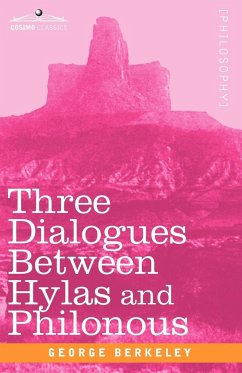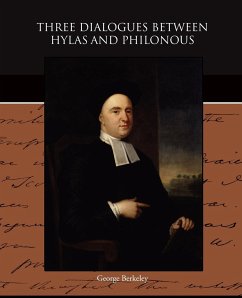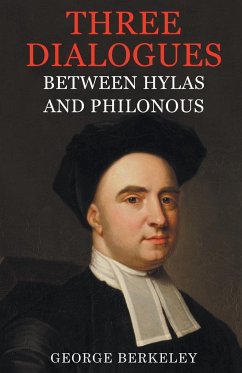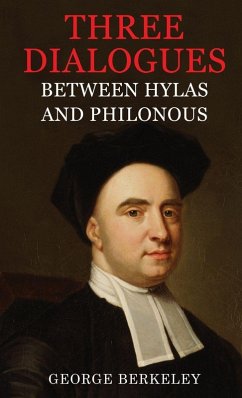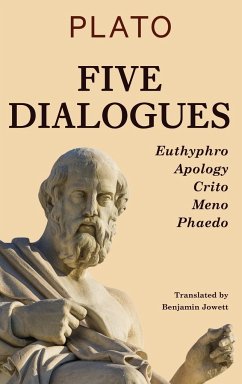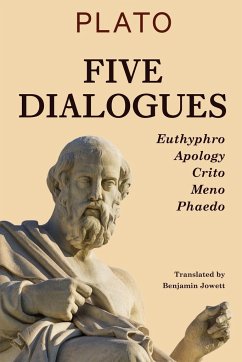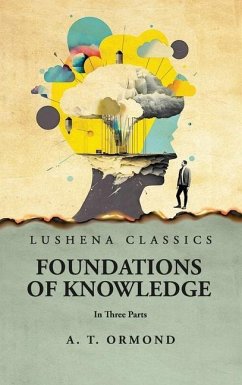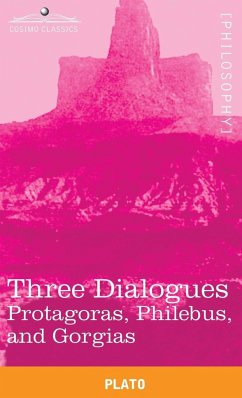
Three Dialogues
Protagoras, Philebus, and Gorgias

PAYBACK Punkte
18 °P sammeln!
Three Dialogues is a collection of three Socratic dialogues by the philosopher Plato: Protagoras, Philebus, and Gorgias. Protagoras is an argument between the elderly and celebrated sophist Protagoras and Socrates about the nature of sophists and virtue. Philebus, written between 360 and 347 BC and one of the last Socratic dialogues, features Socrates (rare for a late dialogue), Philebus, and Protarchus. It centers on the value of pleasure versus knowledge, and focuses in the end on the inherent value of philosophy and reason over drama and poetry: a wholly philosophical idea. Finally, Gorgias...
Three Dialogues is a collection of three Socratic dialogues by the philosopher Plato: Protagoras, Philebus, and Gorgias. Protagoras is an argument between the elderly and celebrated sophist Protagoras and Socrates about the nature of sophists and virtue. Philebus, written between 360 and 347 BC and one of the last Socratic dialogues, features Socrates (rare for a late dialogue), Philebus, and Protarchus. It centers on the value of pleasure versus knowledge, and focuses in the end on the inherent value of philosophy and reason over drama and poetry: a wholly philosophical idea. Finally, Gorgias is an argument between a philosopher and rhetorician, emphasizing the art of persuasion as necessary for gaining legal and political advantages. All three dialogues are also available in the Cosimo omnibus editions of The Works of Plato. One of the greatest Western philosophers who ever lived, PLATO (c. 428-347 B.C.) was a student of Socrates and teacher of Aristotle. Plato was greatly influenced by Socrates' teachings, often using him as a character in scripts and plays (Socratic dialogues), which he used to demonstrate philosophical ideas. Plato's dialogues were and still are used to teach a wide range of subjects, including politics, mathematics, rhetoric, logic, and, naturally, philosophy.



